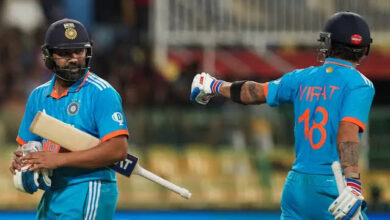“Super Over Controversy in India vs Sri Lanka ODIs: Umpires Misapply ICC Rule”

As the Indian cricket team finished second best in the second ODI against Sri Lanka, their tied first match against the hosts has returned to the spotlight. Surprisingly, the first ODI of the series did not feature a Super Over, despite the scores being tied. The match was declared a tie, although the International Cricket Council’s (ICC) playing conditions mandate a 1-over eliminator to determine the winner in such cases in the 50-over format.

So, why was there no Super Over in the first ODI? According to a report in Cricbuzz, the on-field umpires Joel Wilson and Raveendra Wimalasiri decided against a Super Over, resulting in a tie as the final outcome of the match.
ICC Playing Conditions on Tied ODIs: “If the teams’ scores are equal after both innings have been completed (if applicable under DLS), then a Super Over shall be played. If the Super Over is a tie, then unless exceptional circumstances arise subsequent Super Overs shall be played until there is a winner. Should it not be possible to play or to complete the Super Overs needed to determine a winner, the match shall be tied.”
Neither the ICC nor a member of the Indian management has commented on the issue yet.
What Happened in the India vs Sri Lanka 1st ODI: India’s skipper Rohit Sharma played a standout innings, scoring 58 off 47 balls, but his efforts were not enough as his teammates struggled against Sri Lanka’s quality spin attack. In a chase of 231, Rohit led his team to 71 in 10 overs, but the rest of the batters were uncomfortable against the Lankan spinners. Skipper Charith Asalanka took crucial wickets in successive deliveries, contributing to the 44th tie in ODI cricket history.



